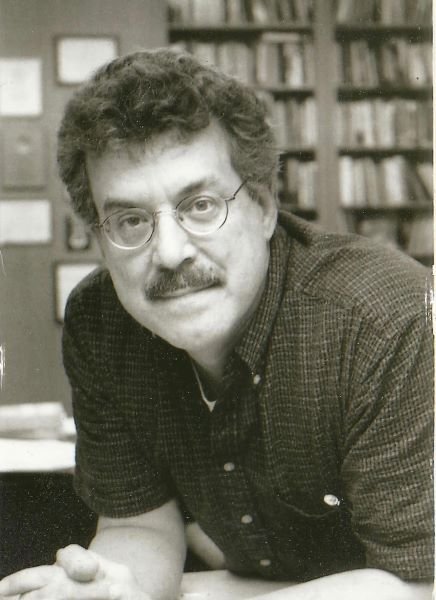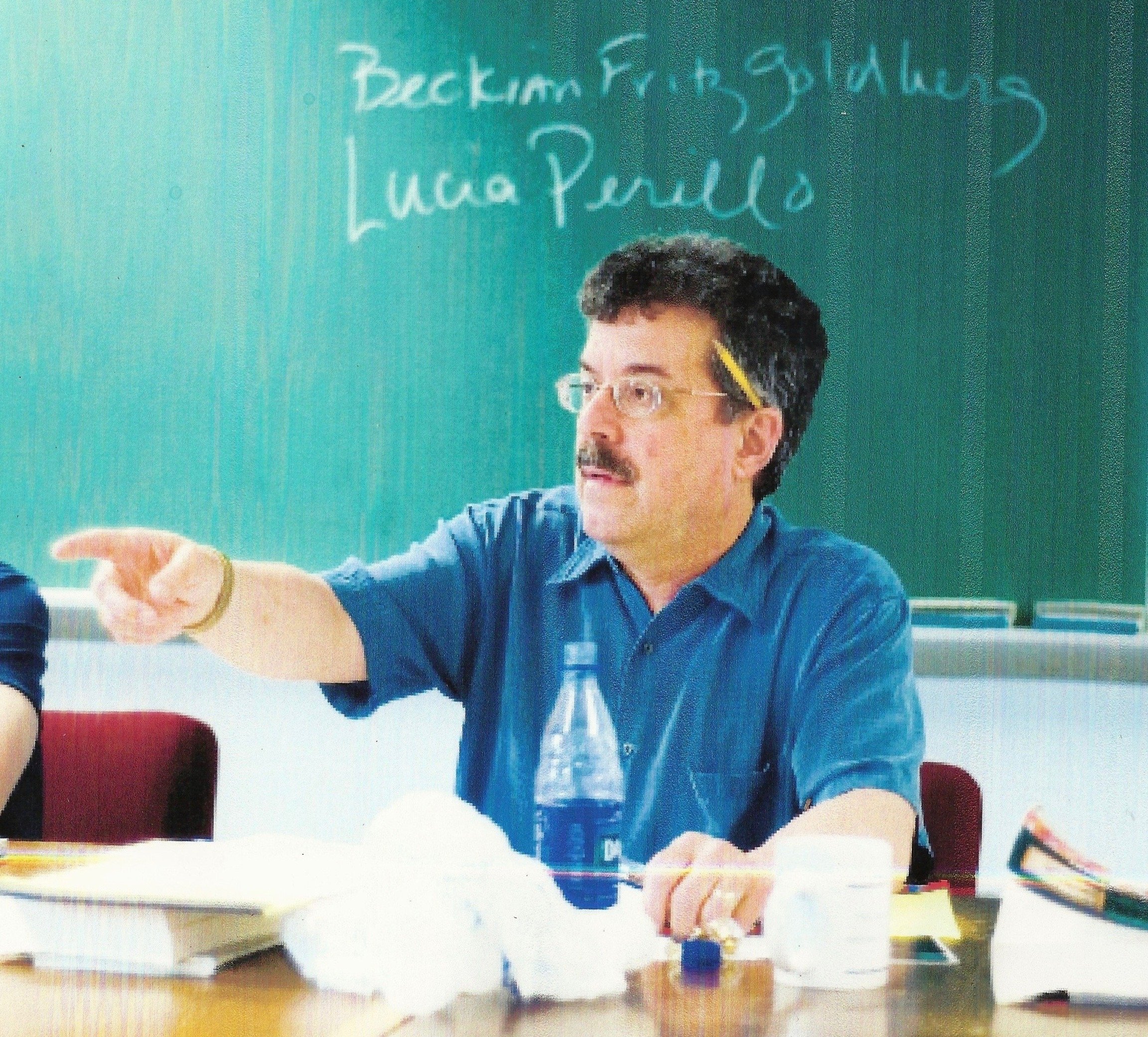David Citino
Beloved Teacher and Poet
Author, professor, and poet laureate for Ohio State University, David Citino taught English and creative writing for more than 30 years; the first 11 years at OSU - Marion. He was the author of 14 books of poetry, among them, Broken Symmetry, The Book of Appassionata: Collected Poems, and The Weight of the Heart.
He was a contributing editor of the prose work The Poet's Eye: Six Views on Writing Poetry, published in 2001.
He also contributed poems to more than 200 magazines and anthologies, including Literary Review, Antioch Review, Great Lakes Review, Kenyon Review, Aspen Anthology, Poet and Critic, and Dalhousie Review.
Among Citino’s many honors and awards are the Governor's Award, four Ohioana Library Association awards including the first annual Poetry Award (1985), the Distinguished Teaching Award (1981), and a Fellowship in Poetry from the Ohio Arts Council (1990).
Citino also served as president for the Thurber House Board of Trustees, a literary arts center that serves as a gathering place for readers, writers, and artists of all ages.
Born in Cleveland on March 13, 1947, David Citino lived in Ohio his entire life. He graduated from St. Ignatius High School. He received his undergraduate degree from Ohio University and his M.A. and Ph.D. from Ohio State. David passed away on October 17, 2005.
When asked to write the narrative of his early years for a publication, David responded: “Well, as uncomfortable as it makes me, I’ve been given this assignment. I need to talk about myself for a spell—in prose.” After discussing his books, honors, and awards, he notes “My real honors (and blessings) are my wife, Mary, and our three children, Nathan, Dominic, and Maria.”
Citino’s teaching methods were inspired by his love of writing, and he was beloved by his students because of that. One of them, Cheryl McPeek Dodds, along with co-editor Philip Avery, would go on to publish a literary arts journal named Urban Spaghetti. It was published for five years and featured poetry, art, and prose. Their first issue included an interview with Citino. Excerpts from the interview paint a rich picture of his techniques and personality.
On being a teacher “I am a writer – every day working on my art and craft. I get to then walk into a classroom or a writing workshop and talk to people who are, too, attempting to write. I have a lot in common with them, and I tell them…that we’re all in this together.”
“I bring in, regularly, newspaper articles. And I say, ‘All right, let’s write a poem on this and do it in two days or five days or seven days or whatever, not for a grade, just to read out loud, and we’ll talk about what we are doing.’ I’ll do the assignments also, so I am actually writing…on the same topics. That, to me, is an exciting classroom experience when you’re all striving to do something together.”
“Another thing I do in my classrooms… everybody reads everything out loud. You try to fill the room with the words of all the poets, those of the class, those from the textbook, the so-called great poets from all time. Get those words out. Get them bouncing around the room.”
On being a poet. “I think the longer I’ve been at this the more I realize that a poet is always an apprentice…I mean I’ll never wake up one morning and say “Well! That’s it! I can’t learn anything more…I’m a poet. Being a poet is recognizing that you have a long way to go, there is too much you don’t know, that there are too many people you don’t know or don’t know about or haven’t felt a thing about and that the world is this adventure…you’re this student of poetry all your life.”
-Urban Spaghetti, Literary Arts Journal, Issue 1
“So, I fancy myself only this: an Italian American religious poet, scented with garlic and incense, festooned with Buckeyes, limping and brandishing a cane. Some would add “academic” to that fat label. I hope not too many would. For some reason, I’m much more comfortable in blue collars than in white, and the sleeves of my jacket have no patches.”
- from David Citino’s Greatest Hits 1978-2000
Cheryl McPeek Dodds and Philip Avery conducted the interview. This was the first time Avery had met Citino and after the interview, he wrote the following poem.
The Cornfield Review
Citino and a group of Marion campus students, founded a literary arts journal, the Cornfield Review, in 1974. Through the years, the journal has published the poetry and fiction of many of Ohio’s leading writers, and the work of many OSUM students and area residents.
The name Cornfield Review was Citino’s idea. The campus at Ohio State University - Marion was built on a cornfield. At that time, some areas of the grounds were still being farmed.
In 2005, an OSU Ph.D. graduate, now associate professor Ben McCorkle, took over publication of the Review. He says:
“I started working at Ohio State Marion as a junior faculty member in 2005, a few years after David had transferred to the Columbus campus (and, unfortunately, the year of his untimely death). Before that, I was a graduate student at OSU, though, and got to interact with him on a handful of occasions. The general characterization of him is one that I remember: He was gentle and soft-spoken, but nonetheless had a large presence about him. People couldn't help but pay attention to him when he spoke.
But as for the Cornfield Review, I took over custody of that publication when I began teaching at Marion, and oversaw the work of the editorial board each year in my literary publishing course. Over the years, we've worked to keep the publication alive, publishing annually (so far, not even COVID has kept us from the press!). Working with staff in the OSU Libraries, I've also tried to expand access to the journal (and David Citino's legacy), digitizing the archives going back to 1976, and creating digital versions of the issue moving forward. It's truly a labor of love, but one that I and my students find incredibly fulfilling.”
-Ben McCorkle, Ph.D., Associate Professor, Writing Program Administrator, OSUM
“David Citino: Beloved Teacher and Poet” by Tom Photos and Richard Straw





